News & Stories
2026

News
13 HKUST Research Projects Secure Top Funding from RGC Collaborative Research Fund and Research Impact Fund
The Hong Kong University of Science and Technology (HKUST) has demonstrated outstanding research leadership in the 2025/26 Collaborative Research Fund (CRF) and Research Impact Fund (RIF) under the University Grants Committee (UGC)'s Research Grants Council (RGC). The University secured funding for 13 projects under the CRF and RIF, with grants totaling more than HKD77 million. The achievement places HKUST first among all UGC-funded universities in both the number of funded projects and total funding received. This accomplishment highlights HKUST's strength in pioneering interdisciplinary and cross-institutional research, as well as its exceptional capacity for knowledge transfer in translating cutting-edge research outcomes into real-world impact that enhances societal well-being.
2025
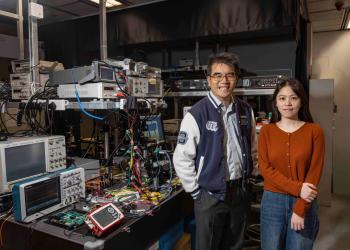
News
HKUST Engineering Researchers Developed a Novel Photodetector to Enhance the Performance of On-Chip Light Monitoring Advancing Applications in Programmable Photonics, Biosensing, and Lab-On-Chip Technologies
Programmable photonics promise faster and more energy-efficient computing than traditional electronics by using light to transmit signals. However, current systems are limited by the need for precise on-chip power monitors. Researchers from the School of Engineering at The Hong Kong University of Science and Technology (HKUST) have developed a germanium-ion-implanted silicon waveguide photodiode. This novel photodetector achieves high responsivity, ultra-low optical loss, and minimal dark current, significantly enhancing the performance of on-chip light monitoring. It provides core hardware for energy-saving and ultra-sensitive biosensing systems, facilitating practical applications in programmable photonics.
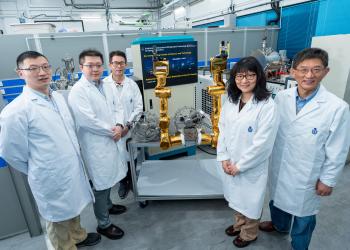
News
HKUST Leads International "Hong Kong Operation Robot" Project
The Hong Kong University of Science and Technology (HKUST) has been appointed by the China National Space Administration (CNSA) to lead the international "Hong Kong Operation Robot" project for the Chang'E-8 mission. The project will unite global aerospace scholars and experts to develop a multi-functional lunar surface operation robot. Equipped with a mobile charging station and capable of dexterous operations, the robot is designed to make significant contributions to the nation's lunar exploration missions.
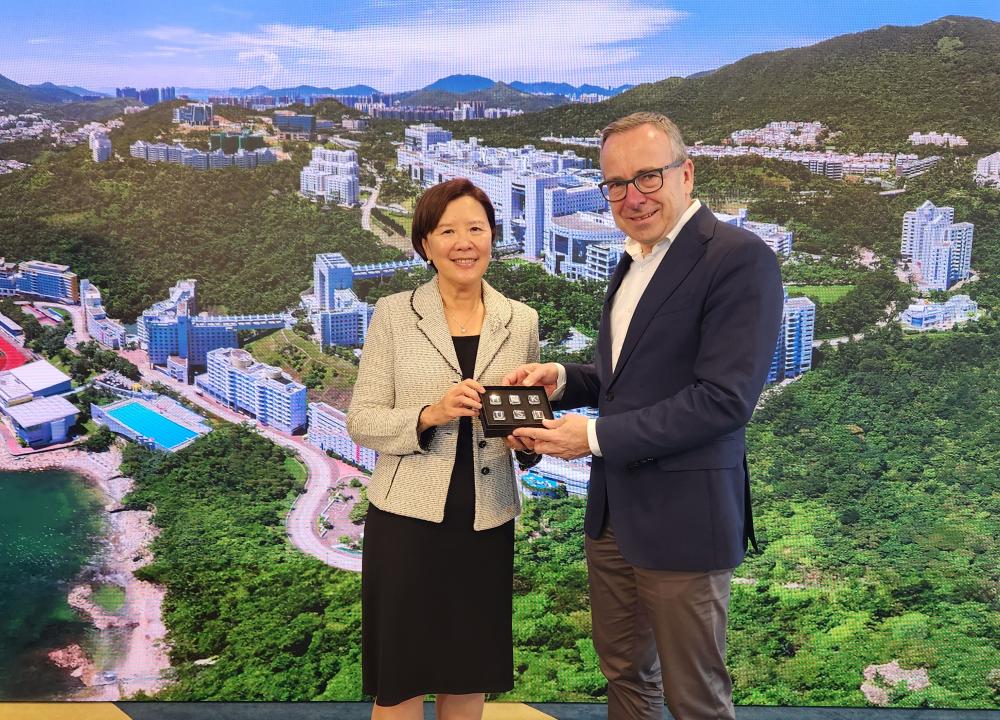
News
HKUST Explores Collaboration with Dieter Schwarz Foundation in Innovation and Sustainability
The Hong Kong University of Science and Technology (HKUST) warmly welcomed a delegation from the Dieter Schwarz Foundation, led by Managing Director Prof. Dr. Gunther FRIEDL on December 10, for an exchange on innovation, sustainability, and future collaboration.HKUST President Prof. Nancy IP and Provost Prof. GUO Yike hosted the delegation, engaging in discussions on the University’s latest initiatives including the upcoming establishment of the third medical school in Hong Kong. The Dieter Schwarz Foundation shared its impactful work in Germany, including the Bildungscampus in Heilbronn and the Innovation Park Artificial Intelligence (IPAI), which have become leading platforms for education, entrepreneurship, and applied research.
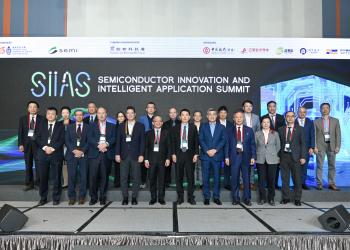
News
HKUST and SEMI Co-Host Inaugural 2025 Semiconductor Innovation and Intelligent Application Summit (SIIAS)
The Hong Kong University of Science and Technology (HKUST) and SEMI successfully concluded the inaugural 2025 Semiconductor Innovation and Intelligent Application Summit (SIIAS). As a prelude to the University's 35th anniversary celebrations and supported by the HKSAR Government, the landmark event made its debut in Hong Kong, attracting over 600 semiconductor industry leaders, leading researchers, key policymakers and students from Chinese Mainland, the United States, Saudi Arabia, Germany, Singapore, and beyond. The Summit focused on the latest technological advancements and global development strategies in the semiconductor industry, further solidifying Hong Kong’s position as an international innovation and technology hub. The event underscored HKUST's leadership in semiconductor research and its pivotal role in uniting government, industry, academia, and investors to drive advancement in the sector.
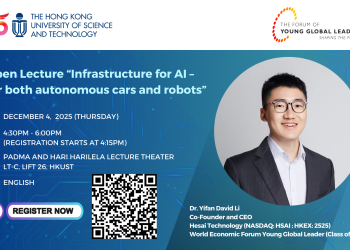
News
HKUST and Forum of Young Global Leaders, an Initiative of the World Economic Forum, Launch Immersive AI Dialogue
The Hong Kong University of Science and Technology (HKUST) is honored to host the Forum of Young Global Leaders 2025 for a five-day Education Module titled "Our AI Future Is Now." In its third year, this immersive program runs from December 1 to 5 on the HKUST campus and brings together close to 40 world's most promising young leaders and entrepreneurs to explore the transformative power of artificial intelligence (AI) across key industries.The module marks a prelude to HKUST's upcoming 35th anniversary celebrations. It will examine AI's profound impact – from its economic and scientific influence to its biomedical and cultural contributions. Participants will engage in expert-led discussions, interactive demos, and deep dive into topics such as AI-driven art-tech in revolutionizing the creative process.
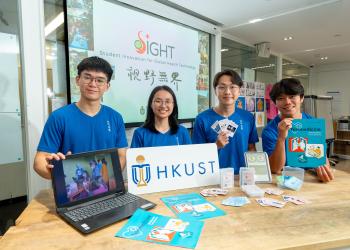
Stories
Bridging Global Health Gaps: HKUST Student Initiatives Breathe New Life into Sri Lanka’s Healthcare
Nestled amidst the majestic mountains and verdant tea plantations of Haputale, a town perched high in Sri Lanka’s highlands, the invigorating scent of foliage enveloped a group of undergraduate students from The Hong Kong University of Science and Technology (HKUST), rejuvenating their spirits.Captivated by the breathtaking landscapes, the students trekked up the hills, laden with backpacks and equipment, until they reached a local community. This marked the beginning of their transformative journey: introducing telemedicine to the remote communities in Sri Lanka's mountainous regions.
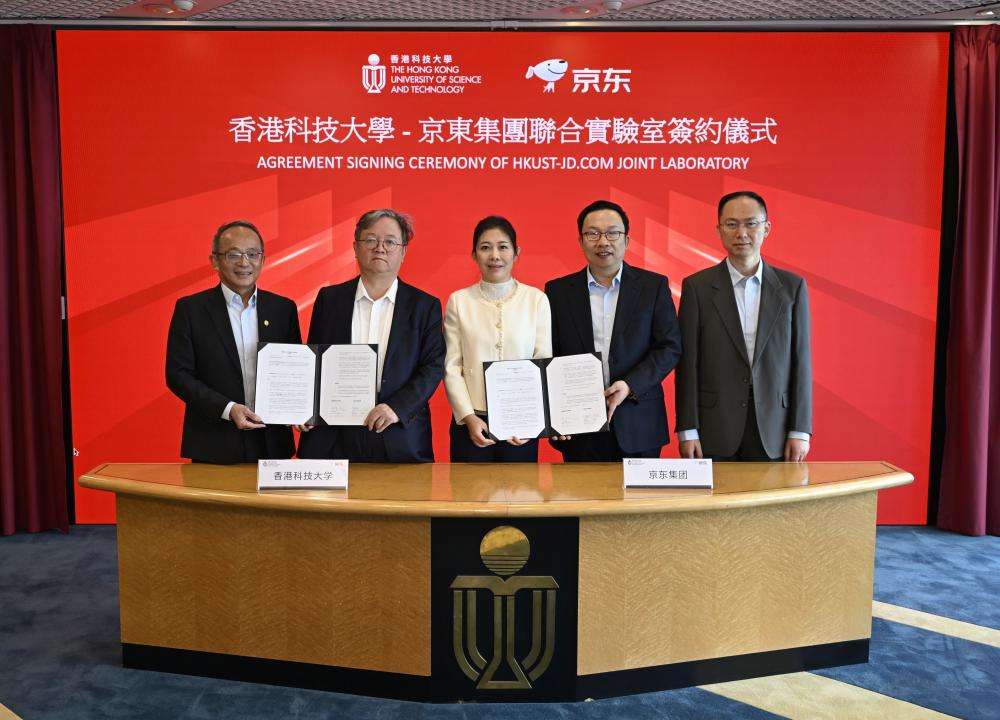
News
HKUST and JD.com Establish Joint Lab to Pioneer Smart Logistics and Health Management
The Hong Kong University of Science and Technology (HKUST) and JD.com today signed a cooperation agreement to establish the “HKUST – JD.com Joint Laboratory” (Joint Lab). This collaboration will focus on pioneering research in artificial intelligence (AI) and embodied intelligence technologies to build a world-class platform for innovation and address critical technological challenges in smart supply chains.Witnessed by HKUST Provost Prof. Yike GUO and Vice Chair of Strategic Executive Committee and Chief Executive Officer of JD.com Ms. Sandy XU, the agreement was signed by HKUST Vice-President for Research and Development, Prof. Tim CHENG, and JD.com representatives.








